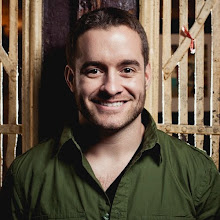hymn story:
Turning to the young Robert Robinson, the bleary-eyed gipsy fortune-teller pointed a quivering finger and said, “And you, young man, you will live to see your children and your grandchildren.”
Robert Robinson suddenly paled and said, “You’re right. She’s too drunk to know what she’s saying. Leave her alone. Let’s go.”
But her words haunted him the rest of the day. “If I’m going to live to see my children and grandchildren,” he thought, “I’ll have to change my way of living.”
That very night, half in fun and half seriously, he took his gang to an open air revival service nearby where the famous evangelist, George Whitfield, was preaching. “We’ll go down and laugh at the poor deluded Methodist,” he explained
Two years and seven months after hearing that sermon, twenty-year-old Robert Robinson made his peace with God, and “found full and free forgiveness through the precious blood of Jesus Christ.”
Joining the Methodists, and feeling the call to preach, the self-taught Robinson was appointed by John Wesley to the Calvinist Methodist Chapel, Norfolk, England. And there, for the celebration of Pentecost (Whitsunday), in 1858, three years after his marvelous conversion, he penned his spiritual autobiography in the words of this hymn.
Newton wrote the words from personal experience. He grew up without any particular religious conviction but his life's path was formed by a variety of twists and coincidences that were often put into motion by his insubordination. He was pressed into the Royal Navy and became a sailor, eventually participating in the slave trade. One night a terrible storm battered his vessel so severely that he became frightened enough to call out to God for mercy, a moment that marked the beginning of his spiritual conversion. His career in slave trading lasted a few years more until he quit going to sea altogether and began studying theology.
Ordained in the Church of England in 1764, Newton began to write hymns with poet William Cowper. "Amazing Grace" was written to illustrate a sermon on New Year's Day of 1773. It is unknown if there was any music accompanying the verses, and it may have been chanted by the congregation without music. It has been associated with more than 20 melodies, but in 1835 it was joined to a tune named "New Britain" to which it is most frequently sung today.
The Greatest Commandment
36"Teacher, which is the greatest commandment in the Law?" 37Jesus replied: " 'Love the Lord your God with all your heart and with all your soul and with all your mind.' 38This is the first and greatest commandment. 39And the second is like it: 'Love your neighbor as yourself.' 40All the Law and the Prophets hang on these two commandments."
Than all the empty claims I've heard upon this earth
Speaks righteousness for me
And stands in my defense
Jesus it's Your blood
What can wash away our sins?
What can make us whole again?
Nothing but the blood
Nothing but the blood of Jesus
What can wash us pure as snow?
Welcomed as the friends of God
Nothing but Your blood
Nothing but Your blood King Jesus

No comments:
Post a Comment